
Nagpur: The Orange City of India
Nagpur, known as the Orange City, is a vibrant metropolis in central India. It is famous for its lush orange orchards and is the second capital of Maharashtra. This city is a blend of historical significance and modern living, making it a unique destination for tourists. Nagpur offers a variety of attractions for travelers. The Deekshabhoomi, a significant Buddhist site where Dr. B.R. Ambedkar converted to Buddhism, is a must-visit. The city's Zero Mile Stone marks the geographical center of India, and it is an interesting spot for geography enthusiasts. For nature lovers, the Ambazari Lake and garden provide a serene escape from the city's hustle and bustle. Foodies will delight in Nagpur's culinary scene, which boasts delicious street food and traditional Maharashtrian dishes. The city's markets are vibrant and full of local produce, including its famous oranges. Nagpur is also known for its rich cultural heritage, with festivals and local events that offer a glimpse into the traditions of the region. For those interested in history, the Sitabuldi Fort and the Raman Science Centre are great places to explore. The city is also a gateway to several wildlife sanctuaries and tiger reserves, such as Pench National Park and Tadoba-Andhari Tiger Reserve, which are perfect for wildlife enthusiasts and adventure seekers.
Local tips in Nagpur
- Visit during the winter months (November to February) for the most pleasant weather.
- Try the local oranges; they are considered some of the best in India.
- Use public transportation or hire a local guide to navigate the city comfortably.
- Respect local customs and traditions, especially when visiting religious sites.
- Carry cash as many small vendors and street food stalls might not accept cards.
Nagpur: The Orange City of India
Nagpur, known as the Orange City, is a vibrant metropolis in central India. It is famous for its lush orange orchards and is the second capital of Maharashtra. This city is a blend of historical significance and modern living, making it a unique destination for tourists. Nagpur offers a variety of attractions for travelers. The Deekshabhoomi, a significant Buddhist site where Dr. B.R. Ambedkar converted to Buddhism, is a must-visit. The city's Zero Mile Stone marks the geographical center of India, and it is an interesting spot for geography enthusiasts. For nature lovers, the Ambazari Lake and garden provide a serene escape from the city's hustle and bustle. Foodies will delight in Nagpur's culinary scene, which boasts delicious street food and traditional Maharashtrian dishes. The city's markets are vibrant and full of local produce, including its famous oranges. Nagpur is also known for its rich cultural heritage, with festivals and local events that offer a glimpse into the traditions of the region. For those interested in history, the Sitabuldi Fort and the Raman Science Centre are great places to explore. The city is also a gateway to several wildlife sanctuaries and tiger reserves, such as Pench National Park and Tadoba-Andhari Tiger Reserve, which are perfect for wildlife enthusiasts and adventure seekers.
When is the best time to go to Nagpur?
Iconic landmarks you can’t miss
Shri Ganesh Mandir Tekdi
Experience spiritual serenity at Shri Ganesh Mandir Tekdi, a stunning Hindu temple offering breathtaking views and a peaceful retreat in Nagpur.
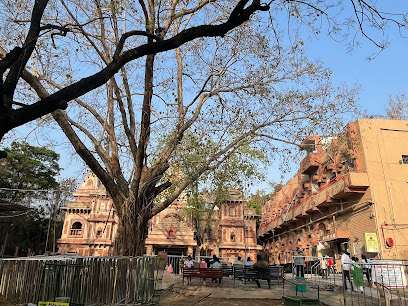
Maharaj Bagh Zoo
Experience the vibrant wildlife and lush landscapes at Maharaj Bagh Zoo in Nagpur, a perfect family-friendly destination for animal lovers.
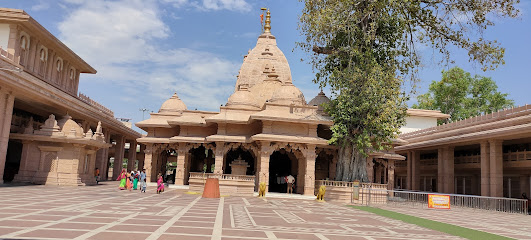
Shri Mahalakshmi Jagdamba Mandir Koradi
Experience the divine elegance of Shri Mahalakshmi Jagdamba Mandir in Koradi, Maharashtra, where spirituality meets stunning architecture and vibrant culture.
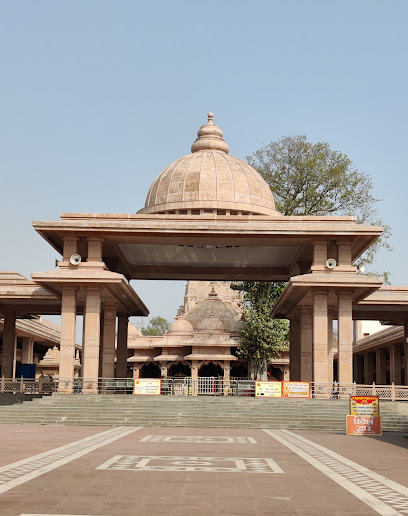
Telangkhedi Hanuman Mandir
Experience the spiritual tranquility and architectural beauty of Telangkhedi Hanuman Mandir in Nagpur, a must-visit Hindu temple for all travelers.
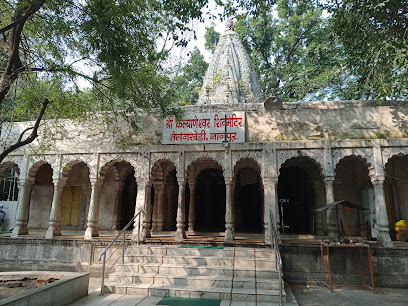
Krazy Castle Aqua Park
Dive into fun at Krazy Castle Aqua Park, Nagpur's ultimate destination for water adventures, thrilling rides, and delightful dining experiences.
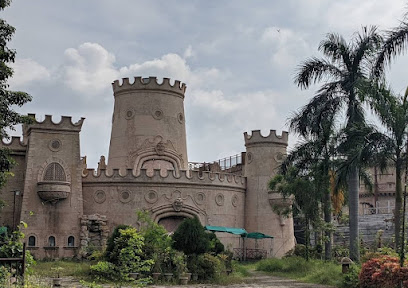
Narrow Gauge Rail Museum
Discover the rich history of India's narrow gauge railways at the captivating Narrow Gauge Rail Museum in Nagpur, a must-visit for history enthusiasts and families.
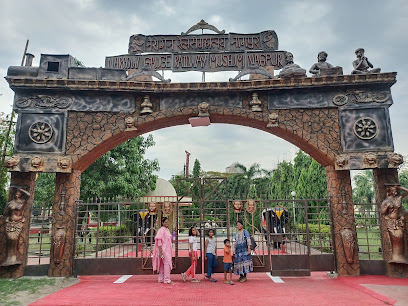
ISKCON Nagpur
Discover ISKCON Nagpur, a spiritual haven blending devotion, stunning architecture, and mouth-watering vegetarian cuisine for an unforgettable experience.
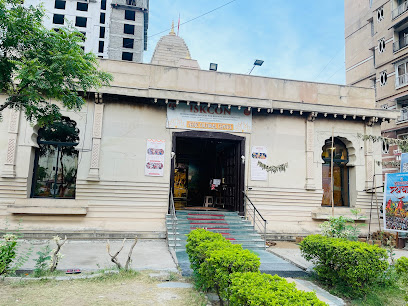
Raman Science Centre & Planetarium
Discover the universe at Raman Science Centre & Planetarium in Nagpur, where science meets fun in an interactive learning environment.
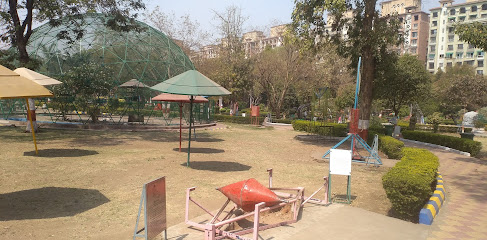
Central Museum of Nagpur
Explore the rich history and cultural heritage of India at the Central Museum of Nagpur, a must-visit destination for history enthusiasts.
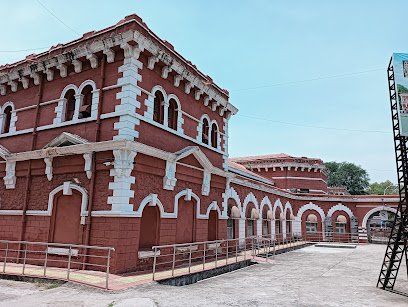
Rani Jhansi Statue
Discover the inspiring Rani Jhansi Statue in Nagpur, a historical landmark celebrating courage and the fight for freedom.
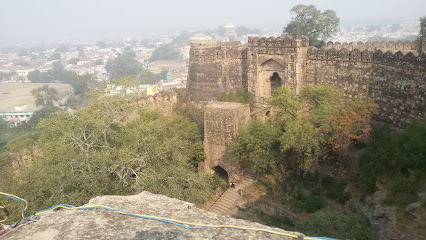
Lendhra Park
Discover the serene beauty of Lendhra Park in Nagpur, a peaceful haven perfect for leisurely strolls and family picnics amidst lush greenery.
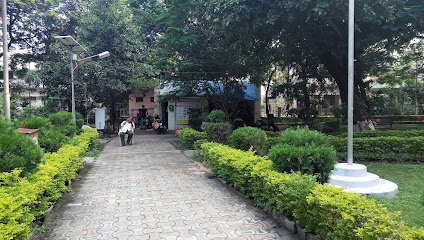
Ambazari Biodiversity Park
Explore Ambazari Biodiversity Park, a serene bird watching area in Nagpur, where nature thrives and tranquility reigns supreme.
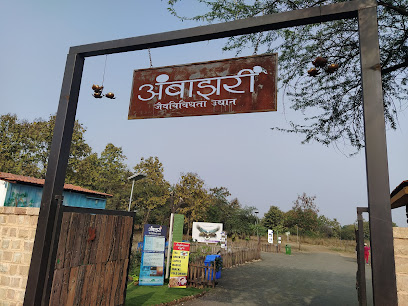
Zero MileStone
Explore the historic Zero MileStone in Nagpur, a unique landmark marking the zero distance point for all national highways since the early 1900s.
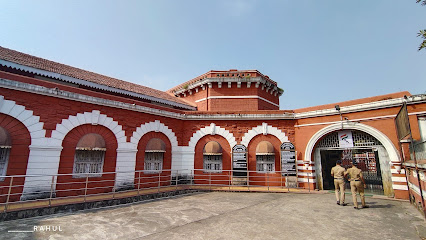
Bardi Railway Station
Explore the historical Bardi Railway Station in Nagpur, an architectural gem that connects you to the region's vibrant culture and heritage.
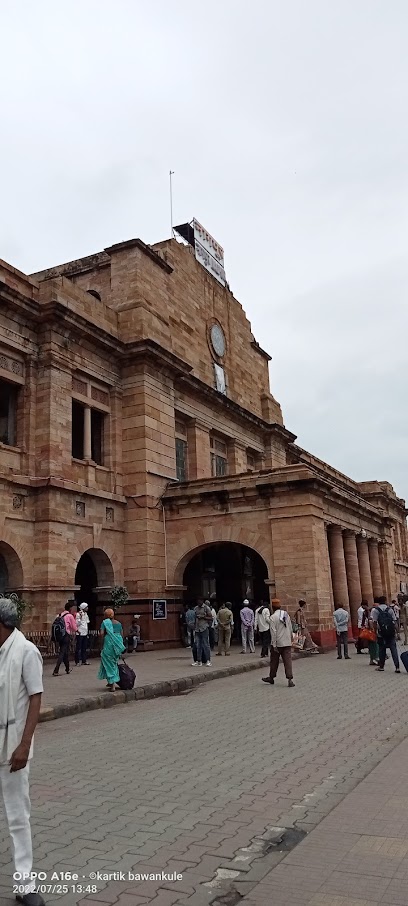
Mahatma Gandhi Statue
Discover the Mahatma Gandhi Statue in Nagpur, a historical landmark celebrating India's freedom leader amidst a vibrant cultural backdrop.
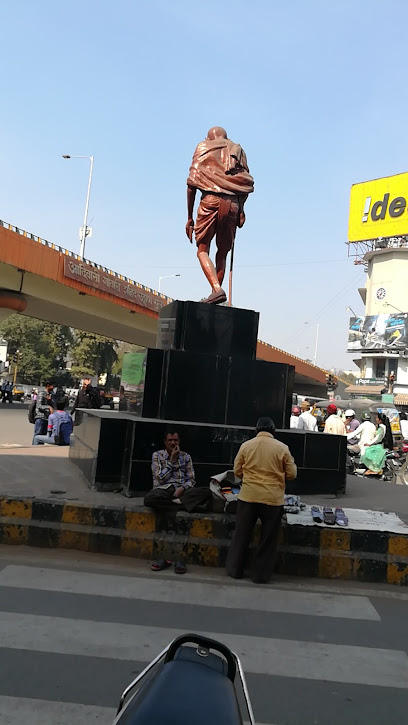
Unmissable attractions to see
Shri Ganesh Mandir Tekdi
Experience the spiritual essence and architectural beauty of Shri Ganesh Mandir Tekdi, a must-visit Hindu temple in Nagpur, Maharashtra.
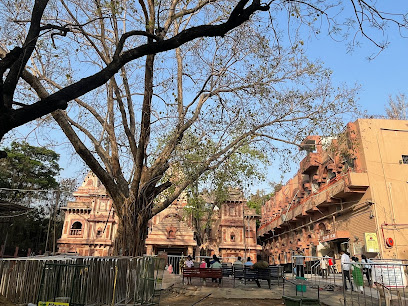
BAPS Shri Swaminarayan Mandir
Explore the architectural wonder and spiritual ambiance of BAPS Shri Swaminarayan Mandir in Nagpur, a captivating Hindu temple and cultural landmark.
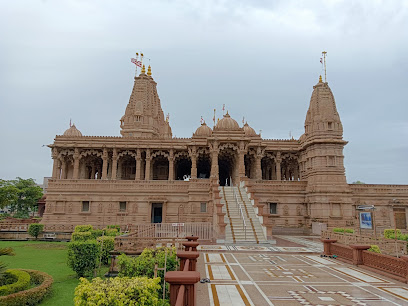
Maharaj Bagh Zoo
Discover the enchanting wildlife and lush landscapes of Maharaj Bagh Zoo, a must-visit destination in Nagpur for nature lovers and families.
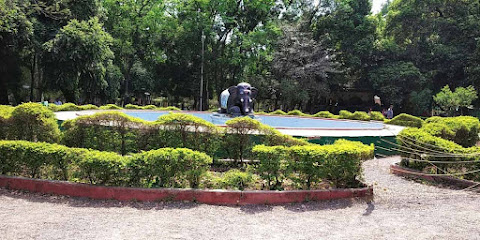
Ambazari Garden
Explore the lush beauty and tranquility of Ambazari Garden in Nagpur, a perfect escape for nature lovers and families seeking relaxation.
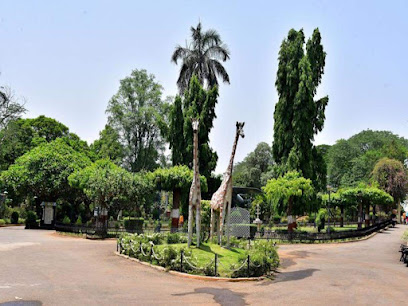
Japanese Garden
Discover the enchanting Japanese Garden in Nagpur, a peaceful retreat filled with beautiful landscapes, traditional architecture, and a serene atmosphere.
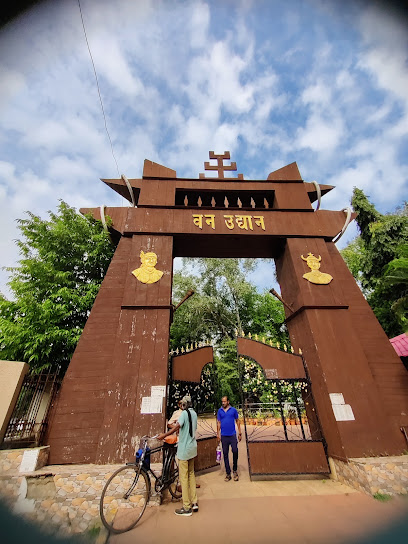
Shri Ram Temple & Fort
Discover the spiritual and historical charm of Shri Ram Temple & Fort in Ramtek, Maharashtra, a must-visit destination for every traveler.
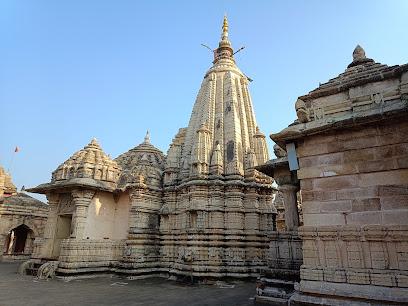
Kasturchand Park
Discover the tranquil beauty of Kasturchand Park, a lush green sanctuary in Nagpur, perfect for relaxation and family outings.
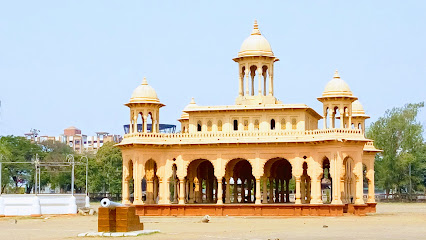
Krazy Castle Aqua Park
Experience the ultimate fun and adventure at Krazy Castle Aqua Park, where thrilling rides and relaxing water attractions await every visitor in Nagpur.
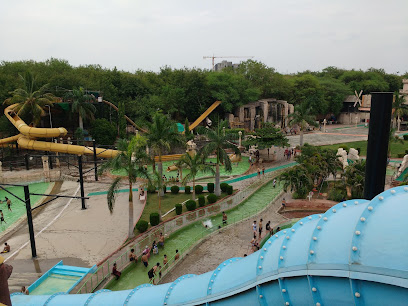
Narrow Gauge Rail Museum
Discover the rich history of narrow gauge railways at Nagpur's unique Narrow Gauge Rail Museum, a must-visit for railway enthusiasts and families.
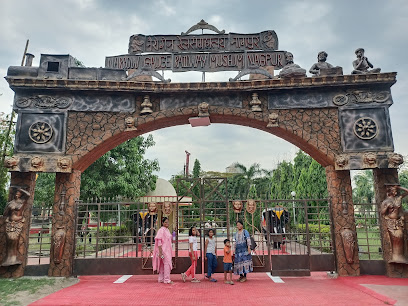
Gandhi Sagar Lake Floating Garden
Explore the breathtaking Gandhi Sagar Lake Floating Garden in Nagpur, where serenity meets nature's beauty in a unique floating floral experience.
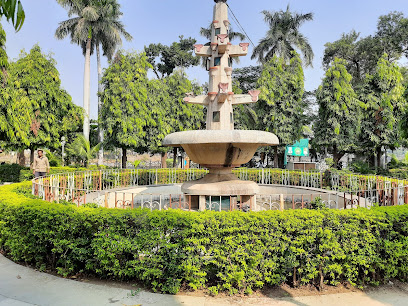
Raman Science Centre & Planetarium
Discover the marvels of science and the universe at Raman Science Centre & Planetarium in Nagpur, Maharashtra - an unforgettable experience for all ages.
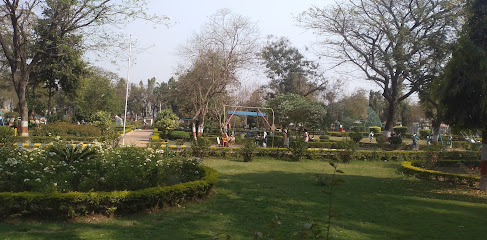
Central Museum of Nagpur
Explore the fascinating history of India at the Central Museum of Nagpur, where culture and heritage come alive through unique artifacts and exhibits.
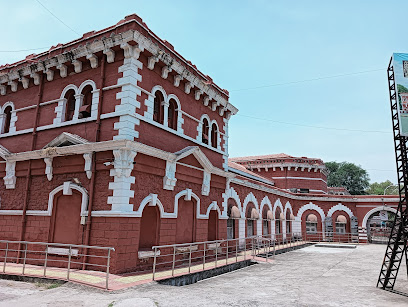
Sakkardara Lake
Explore the tranquil beauty of Sakkardara Lake, a serene escape in Nagpur, perfect for relaxation and leisure amidst nature's charm.
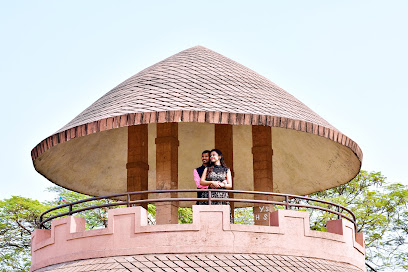
Futala Fountain
Discover the charm of Futala Fountain in Nagpur, a serene tourist attraction perfect for relaxation and picturesque views by the lake.
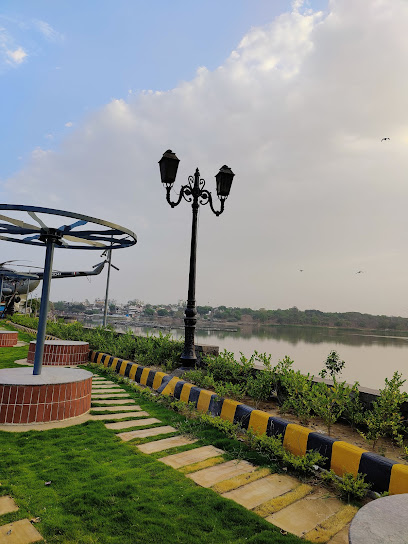
Shri Poddareshwar Ram Temple
Explore the stunning Shri Poddareshwar Ram Temple in Nagpur, a serene sanctuary of spirituality and intricate artistry, perfect for all travelers.
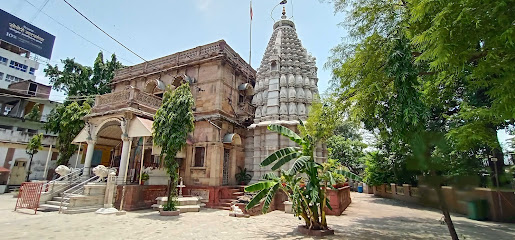
Essential places to dine
Haldiram's Thaat Baat Restaurant
Discover authentic Indian flavors at Haldiram's Thaat Baat Restaurant - where tradition meets modern dining in Nagpur.
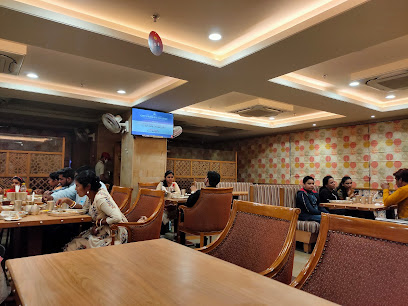
Hitchki Nagpur
Experience the best of Indian cuisine at Hitchki Nagpur, where tradition meets innovation in every dish.
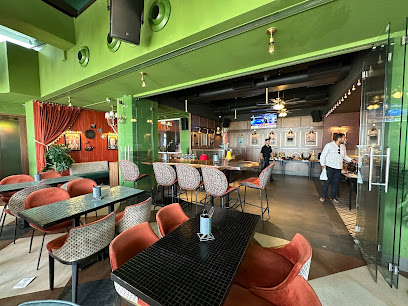
Pablo - The Art Cafe' & Lounge
Discover culinary excellence at Pablo - The Art Cafe' & Lounge in Nagpur, where gourmet cuisine meets vibrant artistry.
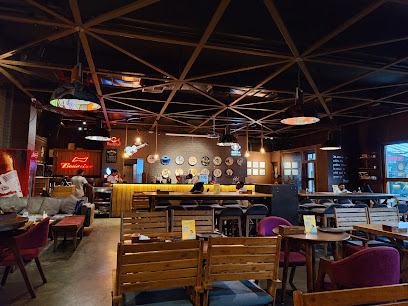
Barbeque Nation - Nagpur - Eternity Mall
Experience an exquisite blend of flavors at Barbeque Nation - Nagpur's premier destination for barbecue lovers in Eternity Mall.
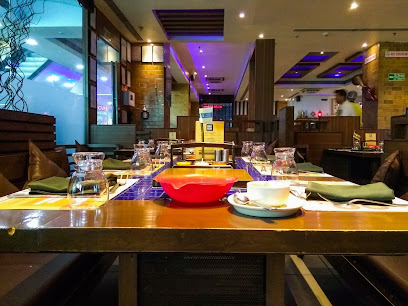
Uttar Dakshin by Naivedhyam
Experience authentic North and South Indian vegetarian cuisine at Uttar Dakshin by Naivedhyam in Nagpur's serene Balaji Corporate Park.
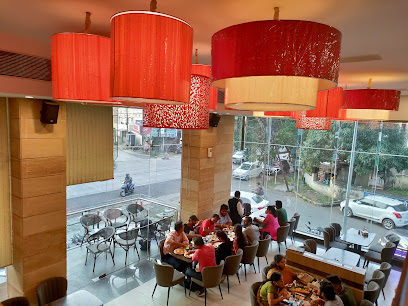
Ashoka Restaurant
Discover the rich flavors of India at Ashoka Restaurant in Nagpur – where every meal is a celebration of taste and tradition.
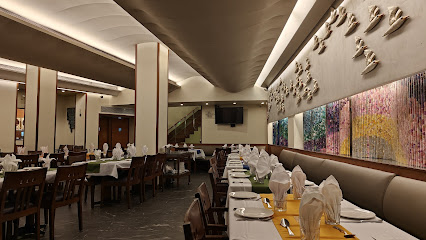
Naivedhyam Restaurant
Discover authentic vegetarian cuisine at Naivedhyam Restaurant in Nagpur - where every meal is a celebration of flavors.
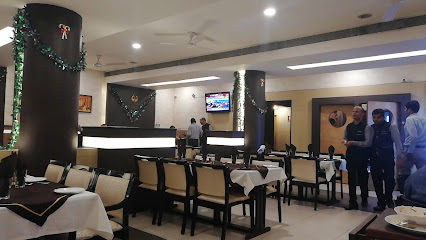
Sanjha Chullah Restaurant
Experience the essence of North Indian cuisine at Sanjha Chullah Restaurant in Nagpur - where every meal is a celebration of flavors.
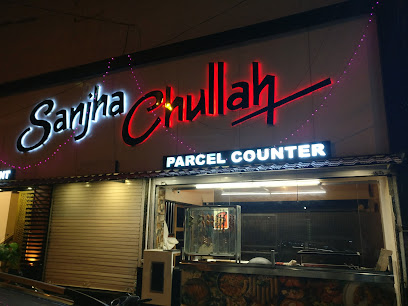
The Breakfast Story
Experience delightful breakfasts at The Breakfast Story in Nagpur - where every morning is a celebration of taste.
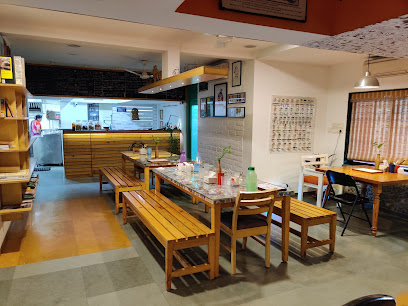
F.S.B
Experience the best of vegetarian cuisine at F.S.B in Nagpur – where flavor meets innovation in every dish.
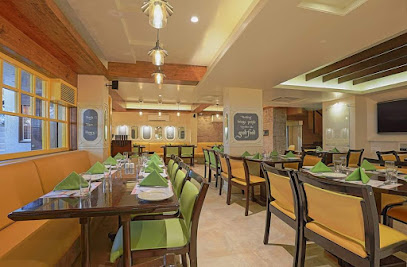
Pahunchar The Family Restaurant
Experience delightful family dining at Pahunchar The Family Restaurant in Nagpur – where great food meets a warm atmosphere.
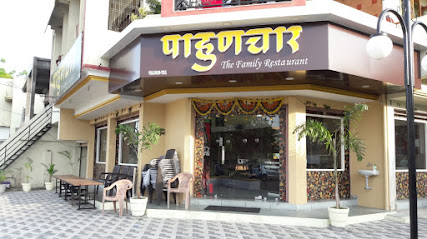
Bouffage Cafe And Bistro
Experience culinary bliss at Bouffage Cafe And Bistro in Nagpur – where diverse flavors meet cozy ambiance.
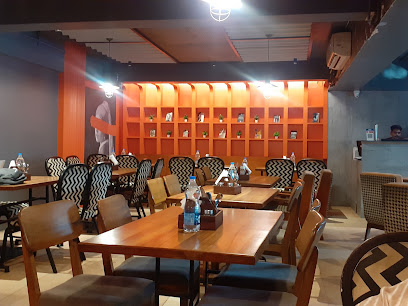
Little Italy
Experience authentic Italian cuisine at Little Italy in Nagpur – where gourmet pizzas meet exquisite vegetarian dishes in a charming atmosphere.
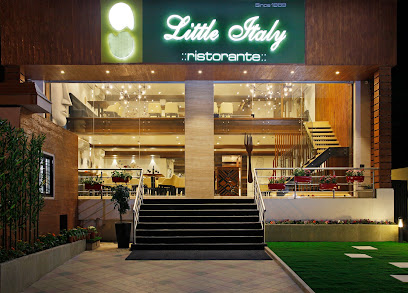
10 Downing Street
Experience fine dining at 10 Downing Street in Nagpur - where exquisite cuisine meets elegant ambiance for unforgettable moments.
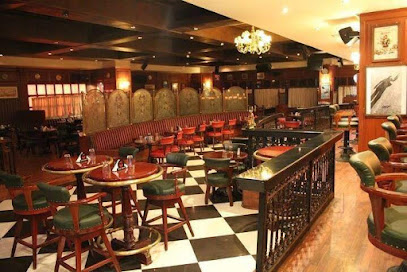
Chill N Grill
Discover the flavors of Nagpur at Chill N Grill - where every meal is a celebration of taste and culture.
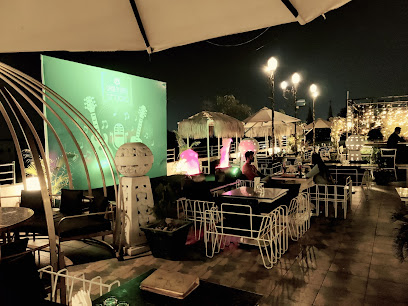
Markets, malls and hidden boutiques
Milton Mall
Explore Milton Mall in Nagpur for a vibrant shopping experience with diverse stores, delightful dining, and family-friendly entertainment.
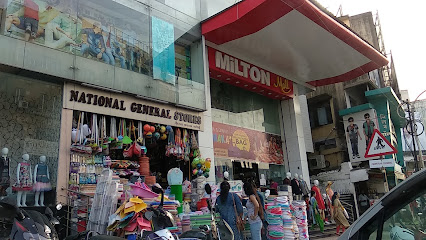
Satyam Mall
Discover the vibrant shopping experience at Satyam Mall in Nagpur, featuring trendy clothing for men, women, and children, as well as exclusive bridal shops.
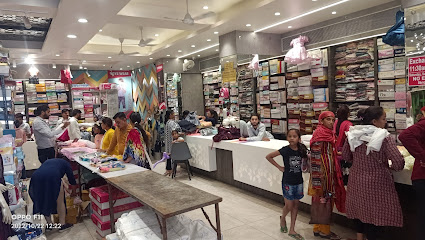
Apna Bazaar
Experience the unique blend of traditional and modern shopping at Apna Bazaar, Nagpur's vibrant outlet mall featuring clothing, crafts, and local cuisine.
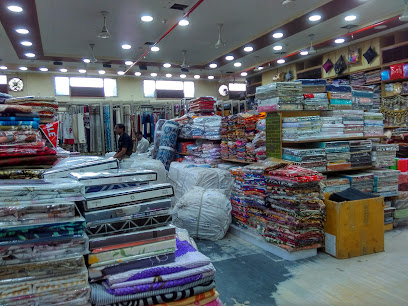
Raghukul A Complete Garments Shop
Explore Raghukul A Complete Garments Shop in Nagpur for a unique shopping experience with exquisite designer clothing that captures the essence of local fashion.
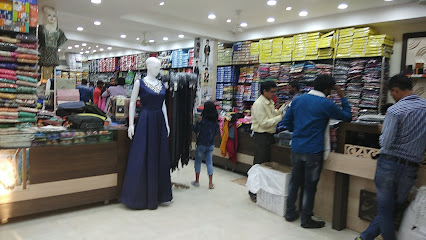
Renuka Watch Co & gift planet
Discover a unique shopping experience at Renuka Watch Co & Gift Planet, featuring gifts, chocolates, watches, and more in the heart of Nagpur.
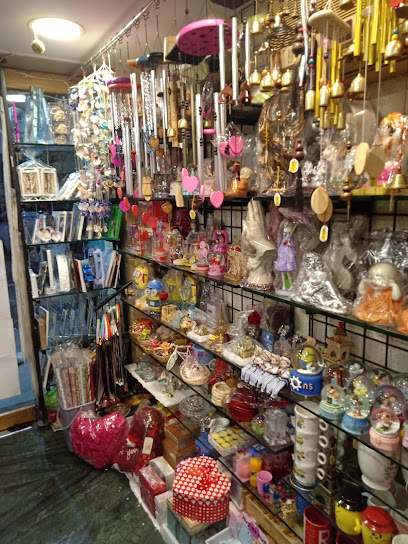
Panaché - Mahal, Nagpur
Explore Panaché in Mahal, Nagpur – your ultimate destination for designer clothing, bridal wear, and chic women's fashion.
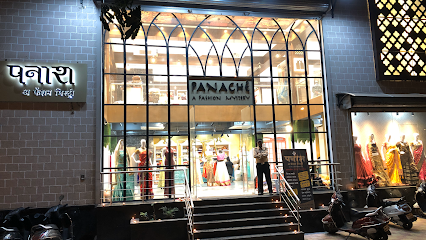
Lifestyle Stores
Explore a diverse range of gifts and fashion at Lifestyle Stores in Trilium Mall, Nagpur, your go-to destination for shopping in India.
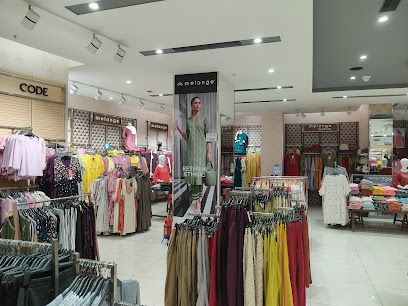
Deepak Emporium
Explore Deepak Emporium in Nagpur for unique gifts and local handicrafts that capture the spirit of Maharashtra.

Himani's Jig n Joy
Explore Nagpur's vibrant gift shop, Himani's Jig n Joy, for unique souvenirs, stunning jewelry, and delightful toys, all in one enchanting location.
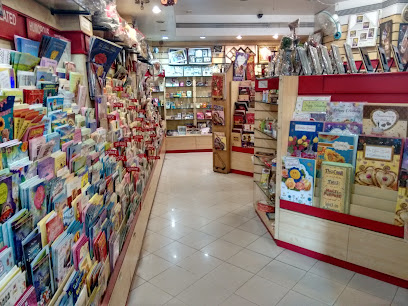
Ethnic House : Boutique and Clothing in Nagpur
Discover vibrant Indian fashion at Ethnic House, Nagpur's premier boutique for stunning traditional and contemporary attire.
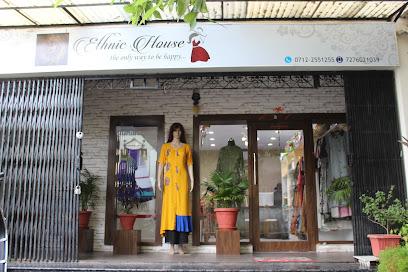
The Unique World - Best cosmetics store in Nagpur
Explore The Unique World in Nagpur for an unparalleled cosmetics shopping experience with expert advice and a vast selection of beauty products.
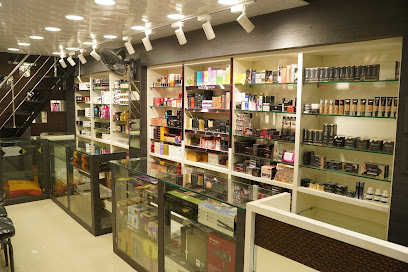
Sanvi Unique Shop
Explore a delightful range of unique gifts and local treasures at Sanvi Unique Shop in Nagpur, a perfect spot for memorable souvenirs.

Shankar Sons
Discover the charm of Nagpur at Shankar Sons, the ultimate gift shop for unique souvenirs and local handicrafts.
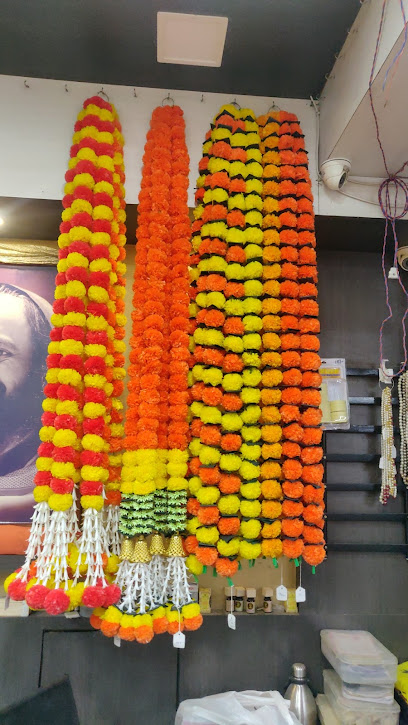
Royal Gifts Stationery & General
Discover unique souvenirs and local crafts at Royal Gifts Stationery & General in Nagpur, a treasure trove for every traveler.
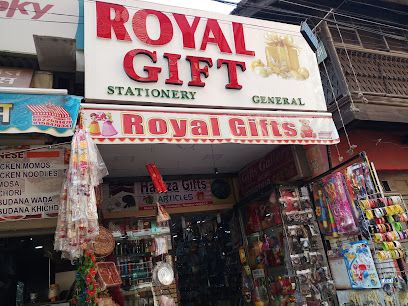
The Silver Lining - Best Gift Shop in Nagpur
Explore an enchanting gift shop in Nagpur, offering unique handcrafted treasures and a glimpse into local artistry.
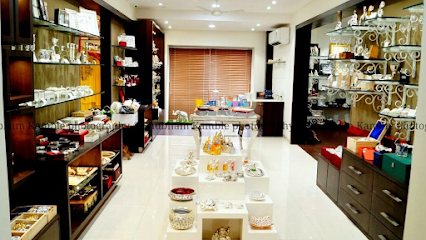
Essential bars & hidden hideouts
On The Rocks - Restobar & Lounge - Mahal
Discover the vibrant nightlife at On The Rocks - Restobar & Lounge, a premier pub in Mahal, Nagpur, offering exquisite drinks and a lively atmosphere.
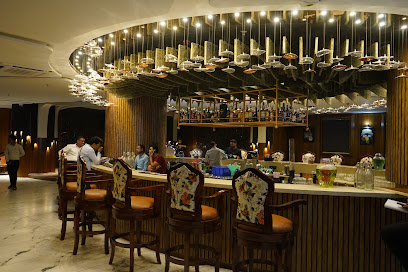
The East India Company - The Restro Lounge
Experience the vibrant atmosphere and exquisite menu at The East India Company, Nagpur's premier lounge and restaurant.
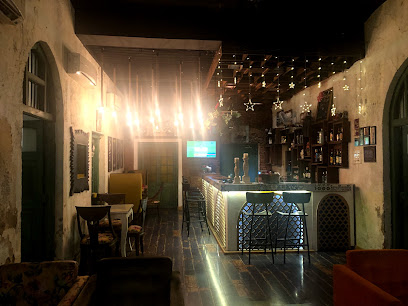
10 Downing Street
Experience a blend of luxury and local flavors at Nagpur's 10 Downing Street, a premier bar and grill with stunning city views.
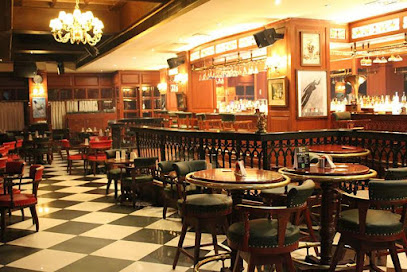
Icecube Pub & Restaurant
Discover the vibrant flavors of Nagpur at Icecube Pub & Restaurant, where delicious grills meet refreshing drinks in a lively atmosphere.
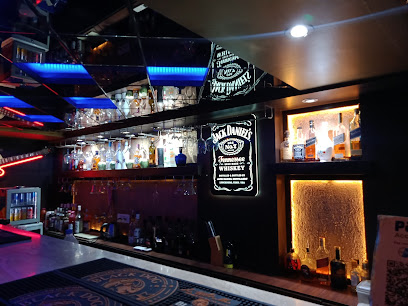
The Cafe Barrel
Experience the perfect blend of ambiance and gourmet cuisine at The Cafe Barrel, a premier lounge in Nagpur's vibrant Dharampeth area.
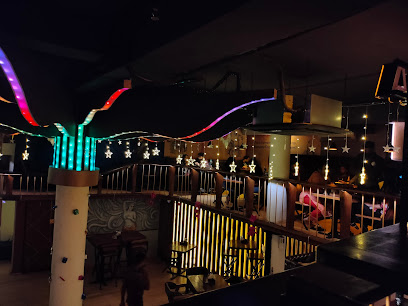
Agent Jack's Bar - Nagpur
Discover the lively atmosphere of Agent Jack's Bar in Nagpur, where great drinks and vibrant nights await you.
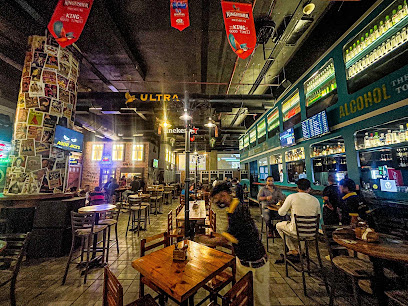
Ruoofh 180º
Discover Ruoofh 180º in Nagpur, where exquisite dining meets stunning views for a memorable culinary experience.
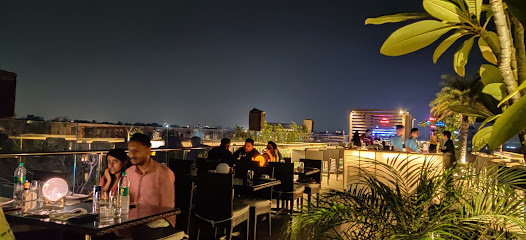
D9 Restro Lounge - Best Lounge & Restaurant in Nagpur
D9 Restro Lounge in Nagpur: A vibrant bar and restaurant offering diverse cuisine, lively atmosphere, and family-friendly dining experiences.
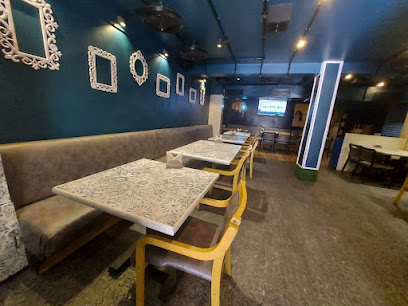
Amrut Bar
Discover Nagpur's vibrant nightlife at Amrut Bar, where exquisite wines and delectable local dishes await you in a lively setting.
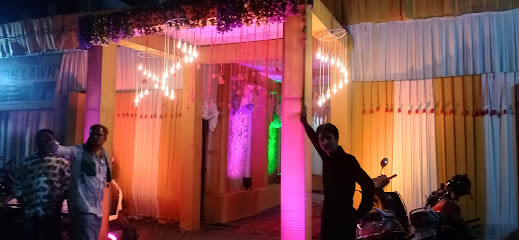
Ice Lounge
Experience the vibrant nightlife of Nagpur at Ice Lounge, where exquisite drinks meet an inviting atmosphere for the perfect evening out.
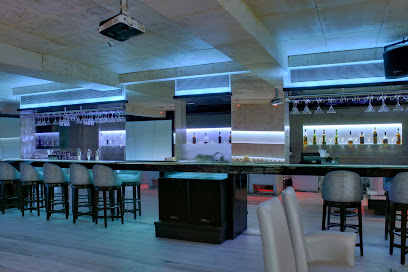
Nagpur Bar And Restaurant
Discover the vibrant atmosphere and delectable flavors at Nagpur Bar and Restaurant, a must-visit spot in the heart of Nagpur's nightlife.
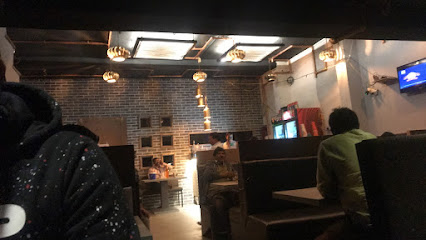
Lord of The Drinks Nagpur
Discover the elegance of nightlife at Lord of The Drinks Nagpur - a stylish lounge offering exquisite cocktails and a vibrant atmosphere.
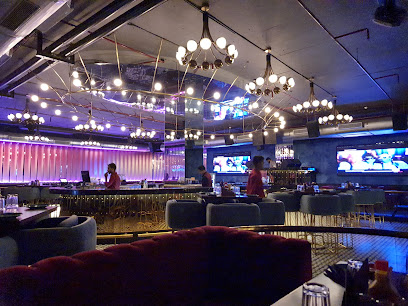
Jashan Bar
Discover the vibrant nightlife of Nagpur at Jashan Bar, where great drinks and a lively atmosphere await.
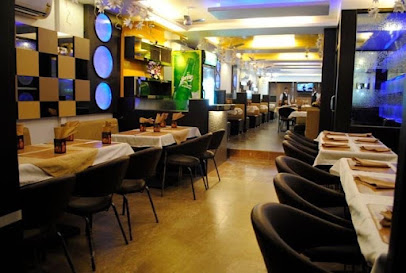
The Beer Café
Experience the vibrant flavors of Nagpur at The Beer Café, where grilled delights and craft beers come together in a lively atmosphere.
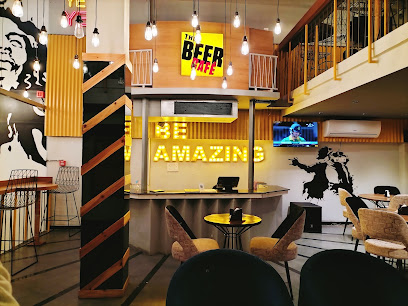
Local Phrases
-
- Helloनमस्कार
[Namaskar] - Goodbyeअलविदा
[Alvida] - Yesहो
[Ho] - Noनाही
[Nahi] - Please/You're welcomeकृपया
[Kripaya] - Thank youधन्यवाद
[Dhanyavad] - Excuse me/Sorryक्षमा करा
[Kshama kara] - How are you?तुम्ही कसे आहात?
[Tumhi kase aahat?] - Fine. And you?ठीक आहे. आणि तुम्ही?
[Theek aahe. Ani tumhi?] - Do you speak English?तुम्हाला इंग्रजी बोलायचे आहे का?
[Tumhala English bolayche aahe ka?] - I don't understandमला समजलं नाही
[Mala samajla nahi]
- Helloनमस्कार
-
- I'd like to see the menu, pleaseकृपया मेनू पहा
[Kripaya menu paha] - I don't eat meatमी मास हे खात नाही
[Mi maas he khat nahi] - Cheers!उबदार!
[Ubadar] - I would like to pay, pleaseकृपया मी करणार आहे
[Kripaya mi karanar aahe]
- I'd like to see the menu, pleaseकृपया मेनू पहा
-
- Help!मदत!
[Madat!] - Go away!निघा!
[Nigha!] - Call the Police!पोलीसला कॉल करा!
[Police la call kara!] - Call a doctor!डॉक्टरला कॉल करा!
[Doctor la call kara!] - I'm lostमी हरलो
[Mi harlo] - I'm illमला आजार आहे
[Mala ajar aahe]
- Help!मदत!
-
- I'd like to buy...मला ... विकत घ्यायचं आहे
[Mala ... vikat ghayach aahe] - I'm just lookingमी फक्त बघत आहे
[Mi fakt baghat aahe] - How much is it?ते किती आहे?
[Te kiti aahe?] - That's too expensiveहा खूप महाग आहे
[Ha khup mahag aahe] - Can you lower the price?किंमत कमी करू शकता का?
[Kimat kami karu shakta ka?]
- I'd like to buy...मला ... विकत घ्यायचं आहे
-
- What time is it?आता किती वाजलं आहे?
[Ata kiti vajal aahe?] - It's one o'clockएक वाजलं आहे
[Ek vajal aahe] - Half past (10)दहा वाजलं
[Daha vajal] - Morningसकाळ
[Sakal] - Afternoonदुपार
[Dupar] - Eveningसंध्याकाळ
[Sandhyakal] - Yesterdayकाल
[Kal] - Todayआज
[Aaj] - Tomorrowउद्या
[Udya] - 1एक
[Ek] - 2दोन
[Don] - 3तीन
[Teen] - 4चार
[Char] - 5पाच
[Pach] - 6सहा
[Saha] - 7सात
[Sat] - 8आठ
[Ath] - 9नऊ
[Nau] - 10दहा
[Daha]
- What time is it?आता किती वाजलं आहे?
-
- Where's a/the...?एक/त्या... कुठे आहे?
[Ek/tya... kuthhe aahe?] - What's the address?पत्ता काय आहे?
[Patta kay aahe?] - Can you show me (on the map)?तुम्हाला दाखवू शकता का (नक्काशावर)?
[Tumhala dakhavu shakta ka (nakkashavar)?] - When's the next (bus)?पुढचं (बस) कधी आहे?
[Pudhach (bus) kadhi aahe?] - A ticket (to ....)एक टिकिट (.... ला)
[Ek ticket (.... la)]
- Where's a/the...?एक/त्या... कुठे आहे?
History of Nagpur
-
Nagpur, often referred to as the 'Orange City' due to its famous oranges, was founded in the early 18th century by the Gond King Bakht Buland Shah. The city initially served as the capital of the Nagpur Kingdom. The Marathas later took control of Nagpur in the mid-18th century under the leadership of Raghoji Bhonsale, marking the beginning of Maratha influence in the region.
-
Nagpur played a significant role during the Third Anglo-Maratha War (1817-1818). The city witnessed the Battle of Sitabuldi, where the Maratha forces under Appa Sahib fought against the British East India Company. Despite intense resistance, the British emerged victorious, leading to the annexation of Nagpur into the British Empire under the doctrine of lapse in 1853.
-
Under British rule, Nagpur was transformed into a major administrative and commercial center. The city became the capital of the Central Provinces and Berar in 1861. The British introduced railway lines, connecting Nagpur to major cities like Mumbai and Kolkata, which significantly boosted trade and commerce in the region. Key infrastructures such as the Nagpur Central Museum and the Empress Mills were established during this period.
-
One of the most significant cultural events in Nagpur's history is the mass conversion ceremony led by Dr. B.R. Ambedkar on October 14, 1956, at Deekshabhoomi. Dr. Ambedkar, a prominent social reformer and the principal architect of the Indian Constitution, along with thousands of his followers, converted to Buddhism in a bid to escape the caste discrimination pervasive in Hindu society. This event marked a pivotal moment in the Dalit Buddhist movement.
-
Nagpur was a hub for the Indian independence movement. The city hosted the annual session of the Indian National Congress in 1920, which was pivotal in endorsing the Non-Cooperation Movement led by Mahatma Gandhi. Prominent leaders like Jawaharlal Nehru and Subhas Chandra Bose frequently visited Nagpur during the freedom struggle, and the city saw numerous protests and civil disobedience movements against British rule.
-
After India's independence in 1947, Nagpur saw rapid industrial and infrastructural development. The city became a major center for education, with institutions like the Nagpur University gaining prominence. The establishment of the Multi-modal International Cargo Hub and Airport at Nagpur (MIHAN) in the early 21st century marked a significant leap towards making Nagpur a global logistics and cargo hub.
-
Nagpur is a melting pot of cultures, with a rich tradition of festivals and cultural events. The city celebrates the Ganesh Chaturthi festival with great fervor, featuring elaborate processions and artistic displays. The Kalidas Festival, held annually, is a significant cultural event dedicated to the classical poet Kalidasa, featuring performances in music, dance, and theatre from artists across India.
-
Nagpur boasts several architectural landmarks that reflect its rich history. The Sitabuldi Fort, a reminder of the Battle of Sitabuldi, offers panoramic views of the city. The Zero Mile Stone, marking the geographical center of India, is another iconic structure. The Dragon Palace Temple, with its serene ambiance and beautiful architecture, is a testament to Nagpur's spiritual heritage.
Nagpur Essentials
-
Nagpur is well-connected by air, rail, and road. The nearest airport is Dr. Babasaheb Ambedkar International Airport, located about 8 kilometers from the city center. It has regular flights from major Indian cities like Mumbai, Delhi, Bangalore, and Kolkata. Nagpur Junction is a major railway station on the Indian Railways network, offering extensive connectivity to various parts of the country. For road travelers, Nagpur is accessible via National Highways 44, 47, and 353, making it convenient for those driving from nearby cities and states.
-
Nagpur offers a variety of transportation options. Auto-rickshaws and cycle-rickshaws are common for short-distance travel. App-based cab services like Uber and Ola are available for more convenient and comfortable rides. The city also has a network of city buses operated by NMPL (Nagpur Mahanagar Parivahan Limited). For a more personalized experience, you can rent a car from local agencies. Nagpur Metro, though still expanding, provides a fast and efficient way to travel across key areas of the city.
-
The official currency in Nagpur is the Indian Rupee (INR). Credit and debit cards are widely accepted in most hotels, restaurants, and shops. However, it is advisable to carry some cash for small purchases, especially in local markets and for transportation. ATMs are widely available throughout the city. Mobile payment options like Paytm, Google Pay, and PhonePe are also commonly used and accepted in many establishments.
-
Nagpur is generally considered safe for tourists, but it's essential to take standard precautions. Avoid isolated areas after dark and be cautious of your surroundings in crowded places. Areas like Sitabuldi and Itwari can be bustling and may have instances of pickpocketing. It's always wise to keep your belongings secure and stay alert. Trustworthy transportation options include app-based cabs and verified hotel taxis.
-
In case of emergencies, dial 112 for immediate assistance. For medical emergencies, major hospitals like Orange City Hospital, Wockhardt Hospital, and Alexis Multispeciality Hospital are well-equipped. Police assistance can be sought at local police stations, and pharmacies are available throughout the city for minor health issues. Ensure you have travel insurance that covers medical emergencies.
-
Fashion: Do dress modestly, especially when visiting religious sites. Avoid overly revealing clothing. Religion: Do respect local customs and traditions. Remove your shoes before entering temples and cover your head when required. Public Transport: Do be respectful and give up your seat to elderly passengers. Don't eat or drink on public transport. Greetings: Do greet people with a 'Namaste' or a handshake. Eating & Drinking: Do try local delicacies and accept food offerings graciously. Don't refuse hospitality, as it is considered impolite.
-
To experience Nagpur like a local, visit the local markets such as Sitabuldi and Sadar for a variety of goods and street food. Engage with locals who are usually friendly and eager to share cultural insights. Don’t miss the famous oranges of Nagpur, often referred to as the 'Orange City'. For a unique experience, visit the Deekshabhoomi, a significant Buddhist monument, and participate in a local cultural fest if your visit coincides with one.
Trending Landmark in Nagpur
-
Shri Ganesh Mandir Tekdi
-
Maharaj Bagh Zoo
-
Shri Mahalakshmi Jagdamba Mandir Koradi
-
Telangkhedi Hanuman Mandir
-
Krazy Castle Aqua Park
-
Narrow Gauge Rail Museum
-
ISKCON Nagpur
-
Raman Science Centre & Planetarium
-
Central Museum of Nagpur
-
Rani Jhansi Statue
-
Lendhra Park
-
Ambazari Biodiversity Park
-
Zero MileStone
-
Bardi Railway Station
-
Mahatma Gandhi Statue
Nearby Cities to Nagpur
-
Things To Do in Jabalpur
-
Things To Do in Raipur
-
Things To Do in Bhopal
-
Things To Do in Aurangabad
-
Things To Do in Nashik
-
Things To Do in Gwalior
-
Things To Do in Visakhapatnam
-
Things To Do in Ranthambore
-
Things To Do in Kanpur
-
Things To Do in Varanasi
-
Things To Do in Pune
-
Things To Do in Vadodara
-
Things To Do in Lucknow
-
Things To Do in Udaipur
-
Things To Do in Agra












